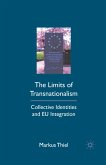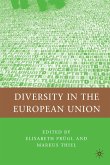Dieser Download kann aus rechtlichen Gründen nur mit Rechnungsadresse in A, B, BG, CY, CZ, D, DK, EW, E, FIN, F, GR, HR, H, IRL, I, LT, L, LR, M, NL, PL, P, R, S, SLO, SK ausgeliefert werden.
"If you want to find out all the ins and outs, advantages and disadvantages, peculiarities and generalities, genealogies and legacies of Germany's most recent GRAND COALITION, this is your book! In an array of insightful and informative essays, the erudite authors succeed to enlighten us about this odd,yet also quite normal, system of governance. I recommend this book to scholars of Germany, Europe and comparative politics as a whole." - Andrei S. Markovits, Arthur F. Thurnau Professor and
Karl W. Deutsch Collegiate Professor of Comparative Politics and German Studies,
University of Michigan, Ann Arbor
"The book gives an in-depth and authoritative assessment of the legacies of the second Grand Coalition experiment in Germany, the campaign and outcome of the federal election of 2009, and the challenges of the Christian Democratic-Liberal coalition in office since 2009. Germany after the Grand Coalition is an essential reading for everyone interested in the political mechanisms which drive present day s politics and policy in Germany." - Manfred G. Schmidt, Professor in Political Science at the University of Heidelberg









